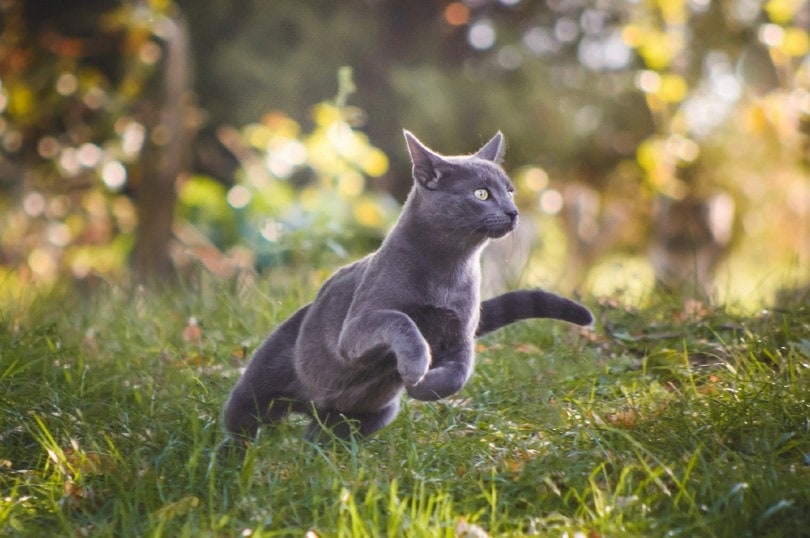Why Doesn’t My Cat Like Being Held? 7 Reasons & Training Tips
By Brooke Bundy
Updated on
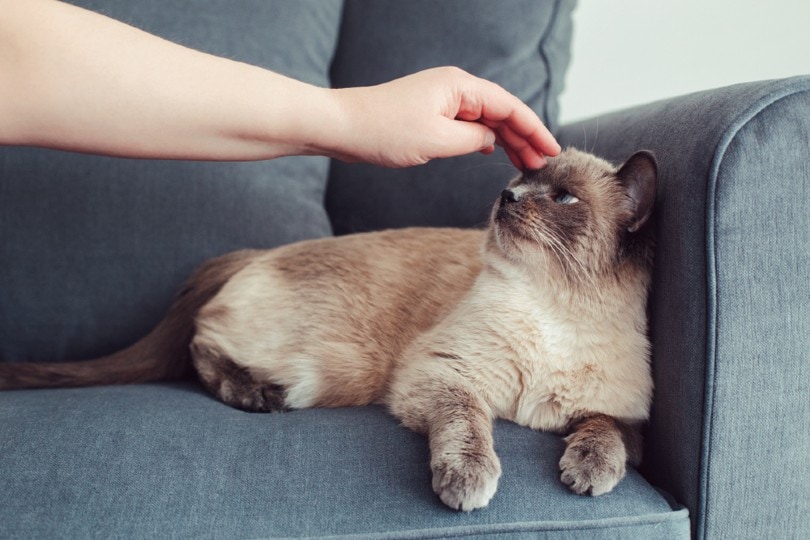
Click to Skip Ahead
Cats are apt snugglers, but mostly when it’s their idea. Probably every cat owner has experienced the disappointment of reaching for your precious kitty, only to be met with alarmed meows, scratches, and bites as they scamper away from you. While your cat could simply not be in the mood at the moment, some cats don’t like being held at all, whether due to temperament or experience. Read on for reasons why your cat may not like being held and tips on how to coax your anxious cat into your arms, or at least bond with them through other ways.
The 7 Reasons Why Your Kitty Won’t Cuddle
1. Not Socialized at a Young Age
If your cat wasn’t held much as a young kitten, they may not appreciate the unfamiliar experience. They may not know what you’re doing to them, and it may just make them generally uncomfortable or scared. They may get used to being held over time, but it may take them a while to warm up to the idea once they know you aren’t going to hurt them. Just don’t try to force it if your cat is uncomfortable.
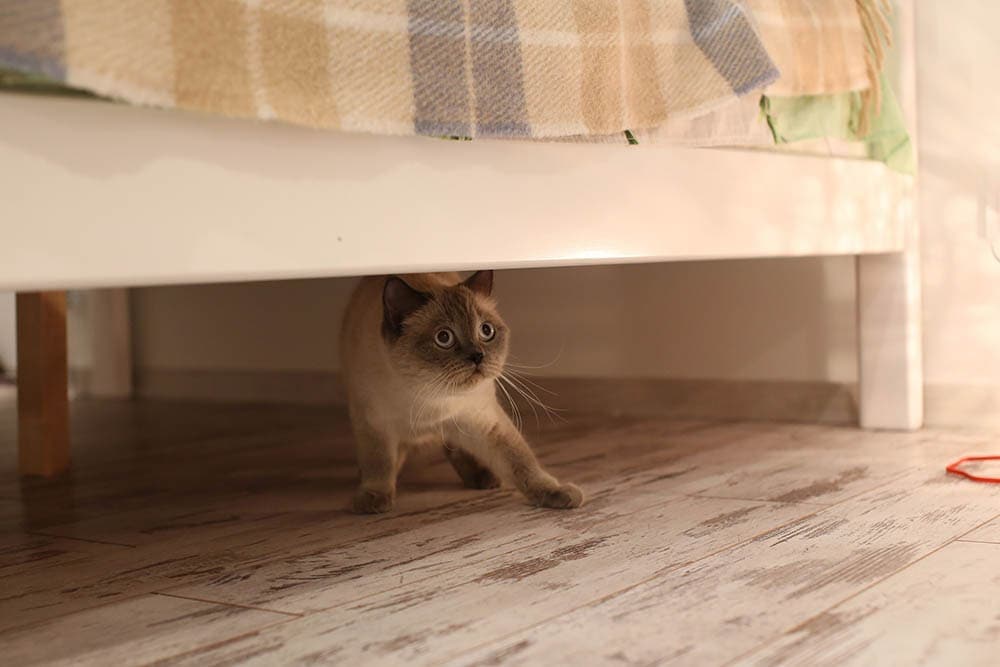
2. They Feel Constrained
Cats crave independence. Some cats may interpret your loving arms as clever snares and try to dart away. Conversely, you could also be holding them too loosely, which will make them feel insecure. The proper way to hold a cat is to tuck their back paws on top of your supporting arm and hold them tightly to your chest. You should never let their paws dangle because that makes them feel like they’re going to fall.
3. Traumatic Experience
You never truly know what your cat has suffered through, especially if they’re a rescue. Whether they were abused by people or animals in their former home, abandoned by the people who were supposed to care for them, or caged for too long at the shelter, your cat may have already experienced nine lives of trauma by the time you adopt them. These cats may not be as receptive to being held and may likely show other signs of anxiety also.
However, this is not to say that rescue cats aren’t snugglers. In fact, some are so grateful for your love that they could be even more affectionate than cats who were born in your house and who have never gone without a meal or your tender care. Rescue cats know the difference, and they’ll likely thank you for it in time.
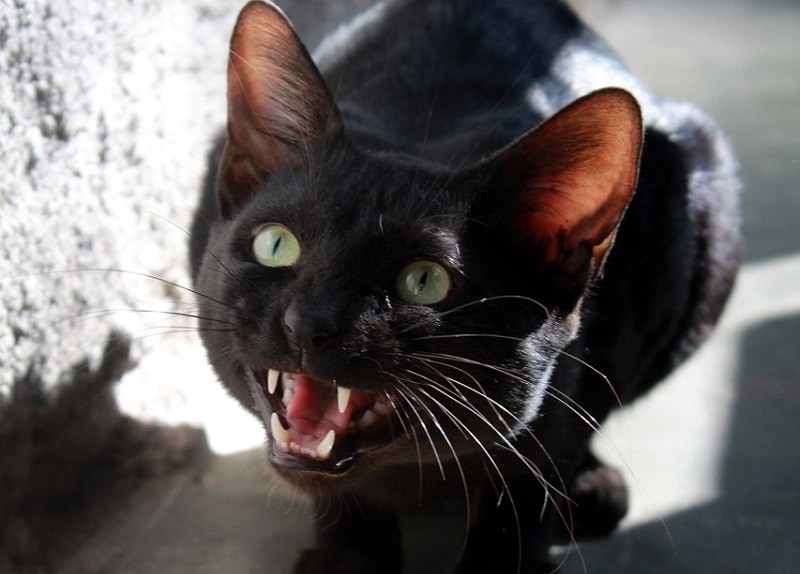
4. Personality
We hate to say it, but sometimes the reason your cat doesn’t like to be held is, well, your cat. Just like humans, some cats respond more enthusiastically to physical touch than others.
5. Breed
Although temperament depends more on the individual cat than their breed, certain cat breeds such as Siamese and Ragdolls are known to be more affectionate and may take better to being held. Others, such as the Bengal, are reputedly more aloof and may not like being held at all.
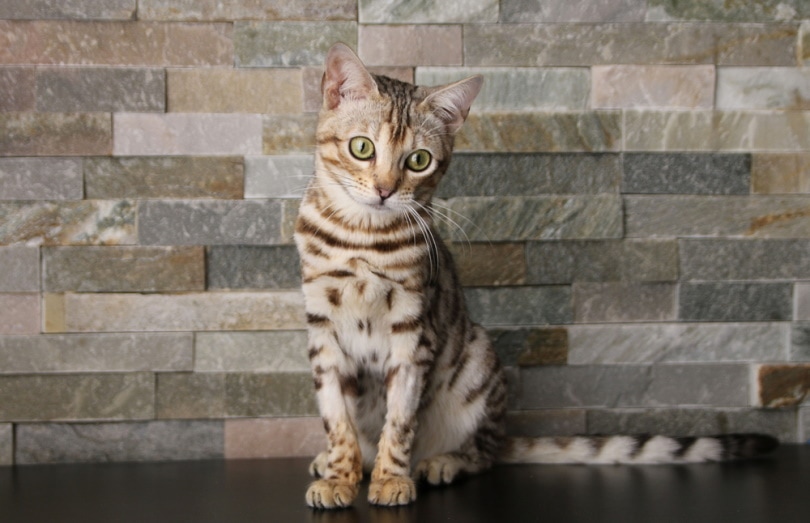
6. They Feel Scared or Shy
If you have a newly adopted cat, they might not be familiar with you enough yet to let you hold them. Even if you’ve had your cat for a while, something else might be making them afraid, such as external stimuli like a barking dog or a screaming child.
7. Injury or Illness
Your cat may be injured or sick. This is especially likely if your long-time snuggler suddenly won’t let you hold them, or they exhibit pain when you touch them. Try to figure out if there’s a specific area that hurts, and then call your vet if necessary to figure out what’s wrong and if you should bring them in for a checkup.
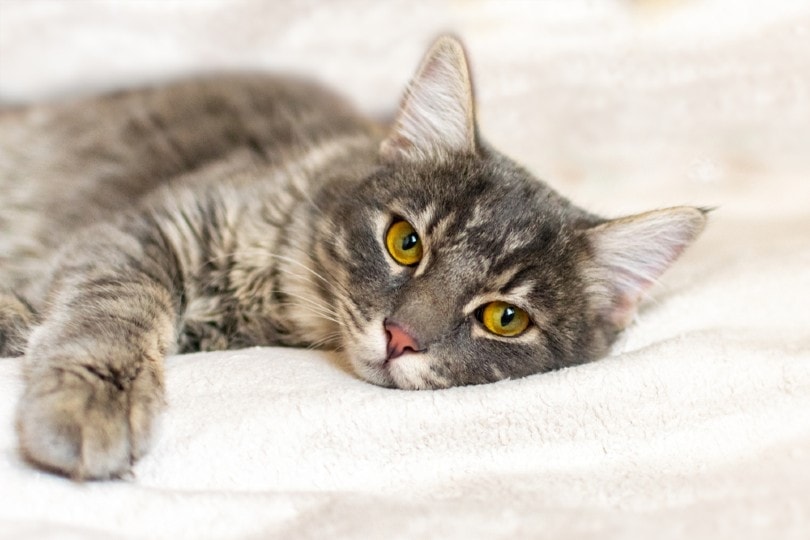
Can You Train Your Cat to Enjoy Being Held?
There’s no guarantee, but if your cat is simply shy or scared due to their temperament, history, or breed, you may be able to train them into liking being held. You should never force your cat to stay in your arms. They’ll likely scratch, kick, or bite you, which can injure you both. Plus, if your cat struggles to get away, they’ll remember the encounter next time you try to pick them up, which strengthens their negative associations.
To train your cat to let you pick them up, you should begin by approaching them calmly. Don’t chase them if they run away. If they don’t run away, give them a treat and pet them gently. Repeat over several sessions and then see if they’ll let you sit beside them. They may naturally crawl into your lap.
Over time, you can try to pick them up, but don’t force them. Some cats simply don’t like being held, but they can still bond with you through other ways. Try playing with them with toys such as laser pointers, catnip pouches, or feather teasers. Some cats speak food as their love language, so figure out which treat really makes them purr, and indulge them.
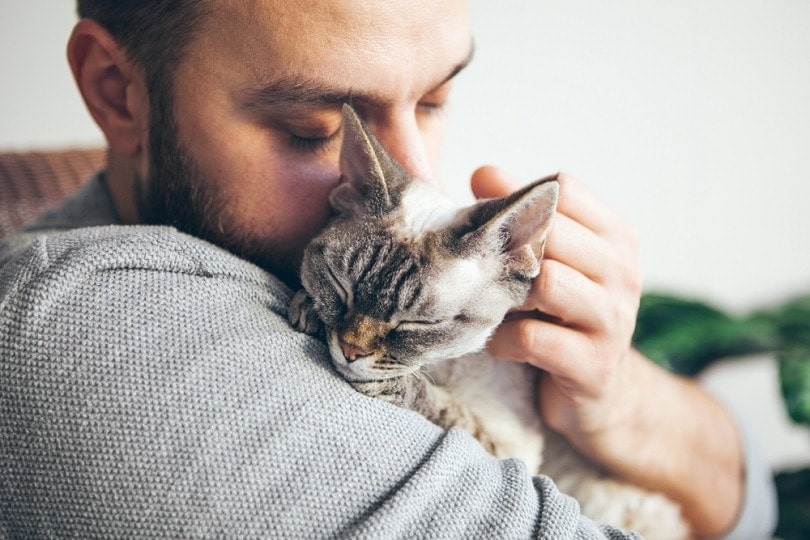
Final Thoughts
Some cats enjoy being held, but others don’t. If they’re injured or new to the family, this is often a temporary behavior that may go away after they’ve healed or learned they can trust you. After a while, your cat may enjoy being held, but don’t force it. Just because your cat doesn’t prefer physical affection doesn’t mean that you can’t be close friends. Some cats respond well to snuggles, others to playtime or special foods. Figure out what tells your cat they’re special and try to find a way to bond over that.
Featured Image Credit: Anna Kraynova, Shutterstock


